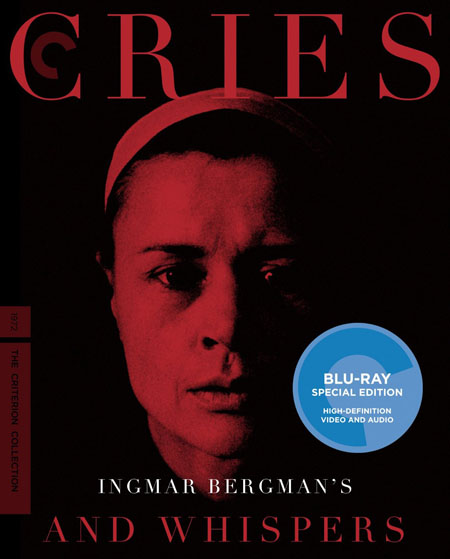
“CRIES AND SISTERSâ€
By Raymond Benson
One
of the late, great Ingmar Bergman’s skills as a filmmaker was to write and
direct memorable roles for women. He was one of the few directors, such as Ford
or Altman or Allen, who repeatedly relied on a “stock company†of actors
throughout his career. While there were many wonderful male actors who worked
for Bergman (Max von Sydow, Erland Josephson, Gunnar Björnstrand),
we generally remember the women—Liv Ullmann, Harriet Andersson, Ingrid Thulin,
Eva Dahlbeck, Bibi Andersson, among many—for baring their souls on screen in
Bergman’s challenging, difficult works that always elevated the art of film to
breathtaking levels.
Cries and Whispers is an excellent
example of the power of the female actor. It’s essentially a four-woman chamber
piece, taking place in the late 1800s in Sweden, about three sisters and a
servant, their relationships to each other, to their pasts, and to their stance
on mortality. It stars (in alphabetical order) Harriet Andersson, Kari Sylwan,
Ingrid Thulin, and Liv Ullmann, and it is arguably Bergman’s most well-known
picture in the U.S. It premiered in late 1972 but its general release was in 1973,
thus qualifying it for the ’73 Oscars. It’s Bergman’s only film to be nominated
for Best Picture (as opposed to Foreign Language Film), competing against the
likes of The Sting (which won), The Exorcist, American Graffiti, and A
Touch of Class (how did that one
get in there?). Bergman was nominated for Director and his Original Screenplay.
Despite all that, one could argue that the real star of the film is Sven
Nykvist, whose cinematography did win
the Oscar that year, and deservedly so.
As
one of Bergman’s few films in color, one must recognize the difficulty Nykvist
had in photographing rooms that were entirely red—red walls, red carpeting, red
furniture, red bedspreads—with touches of white in the drapes, clothing, fine
china, and sheets. Contrasting these intense shades with the flesh tones of
human beings and making it all work, especially in the early 70s, is nothing
short of remarkable. Thankfully, The Criterion Collection has seen fit to
upgrade their original DVD release to Blu-ray, and the results are absolutely
gorgeous. The new 2K digital restoration is superb.
On
the surface, the story seems simple—Agnes (Andersson) is dying of cancer. Her
two sisters, Karin and Maria (Thulin and Ullmann), are holding vigil and
waiting for the inevitable to happen, but it is the servant, Anna (Sylwan, who
made her extraordinary film debut with the picture) who does all the
caretaking. The four performances are gut-wrenching. Ullmann actually plays a
dual role as the sisters’ mother in flashbacks, and there are men on the
periphery as well, including Bergman regulars Erland Josephson and Anders Ek.
In
the movie’s 91 minutes, Bergman explores these women’s fears, loves,
prejudices, and faiths through flashbacks, dreams, and conflict with each other
and themselves. Never in Bergman’s work was the influence of playwright August
Strindberg more palpable, but there is a great deal of Anton Chekhov at play
here as well. This is serious, complex, soul-searching—and soul-shattering—stuff.

Sounds
rather grueling, doesn’t it? Well, it is, but that doesn’t make it any less
entertaining. The director’s use of the color red is fascinating—film scholars
have interpreted it to represent the “inside of the womb,†or perhaps the
“color of the soul.†For me it’s the interior of the heart, and it’s a
simultaneously warm and cold one. For, ultimately, what the movie is about is
the pain that we can cause our loved ones, the very people for whom we are
supposed to provide solace.
The
extras include a wonderful new and revealing interview with Harriet Andersson
conducted by Bergman scholar Peter Cowie. There’s a 2001 introduction to the
film by Bergman. “On Solace,†by the terrific video essayist ::kogonada, dissects
the three acts of the film. There are thirty minutes of behind-the-scenes
footage narrated by Cowie, the theatrical trailer, and the port-over from the
original DVD release, Ingmar Bergman:
Reflections on Life, Death, and Love with Erland Josephson, a fifty-two
minute dialogue between the director and actor. The booklet contains an essay
by film scholar Emma Wilson.
If
you’re debating whether or not to upgrade from Criterion’s original release,
the answer is a resounding YES. If you’ve never seen Cries and Whispers, then you’re missing an essential piece of
cinematic brilliance.
CLICK HERE TO ORDER FROM AMAZON
